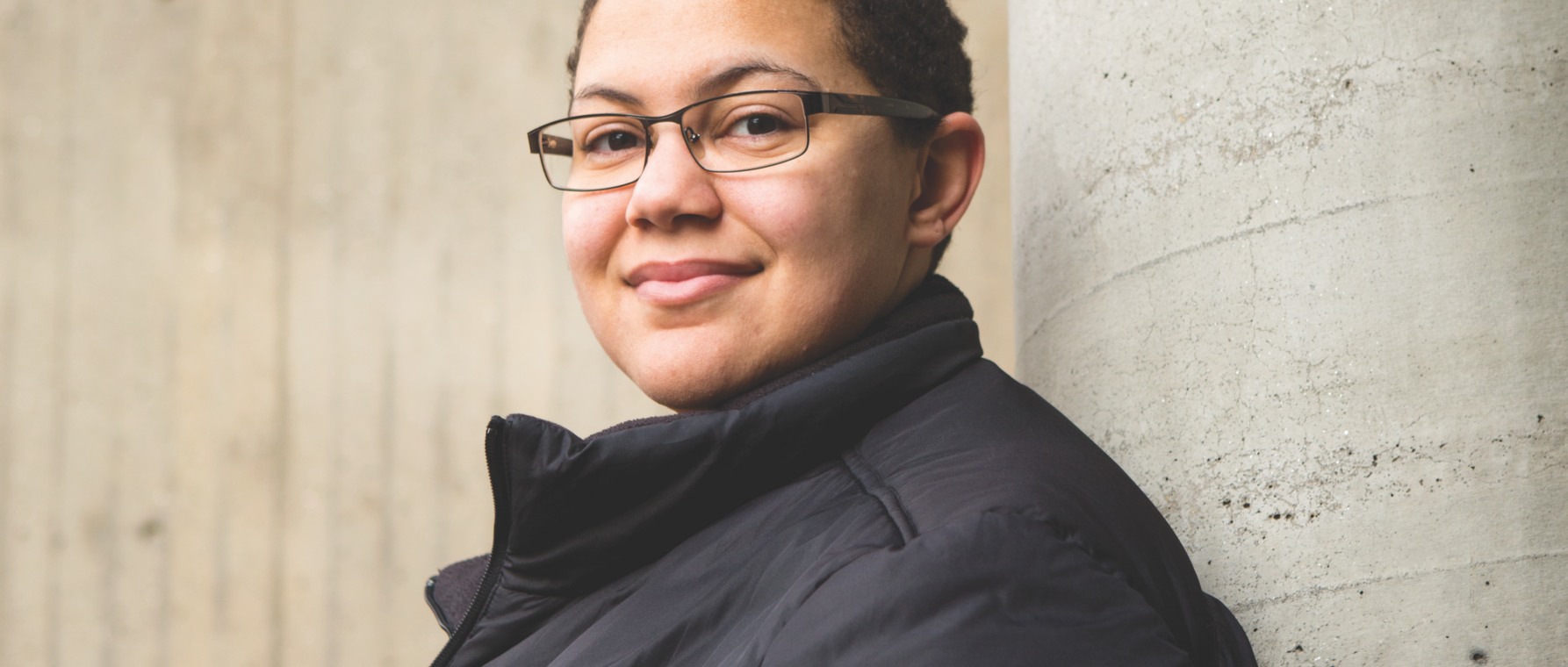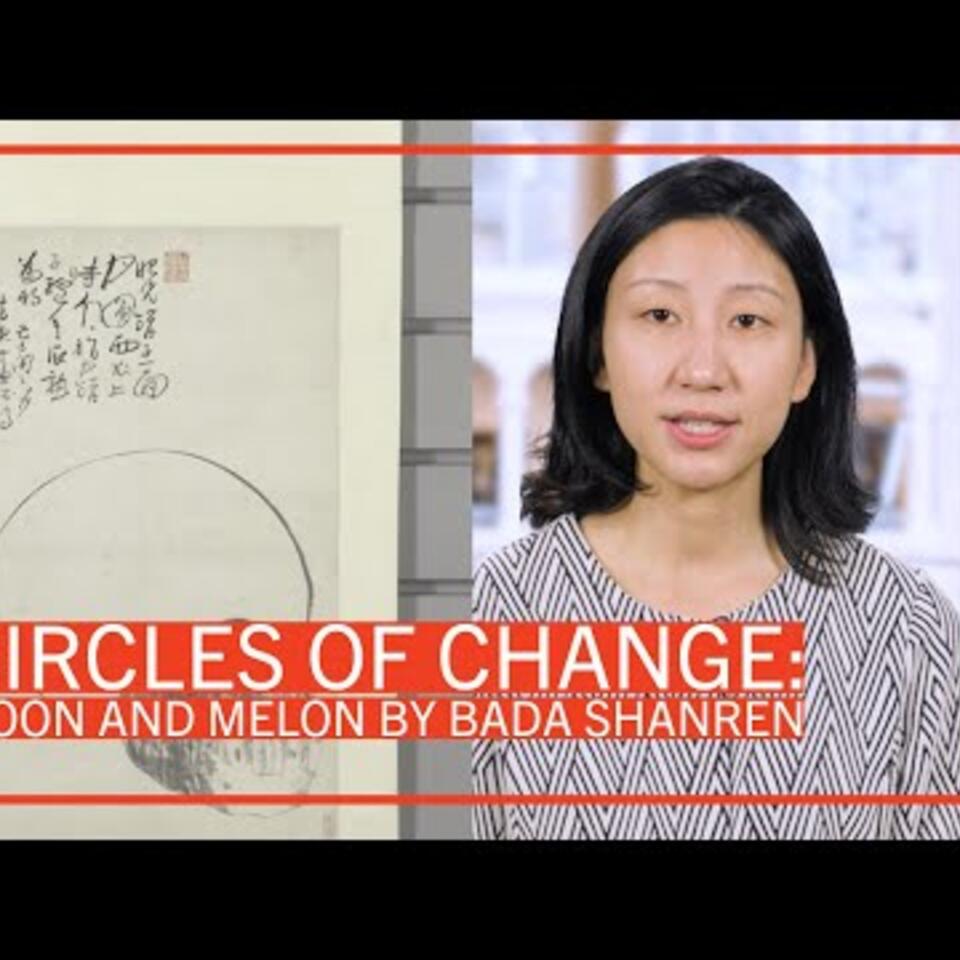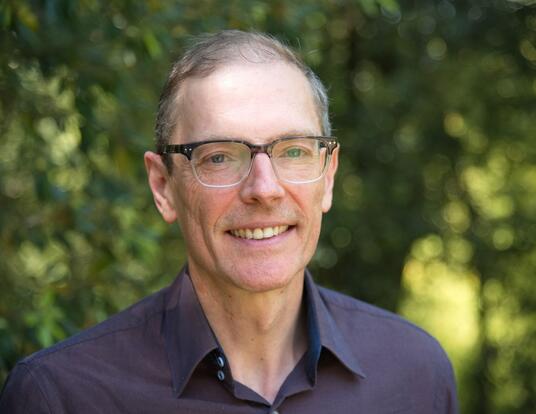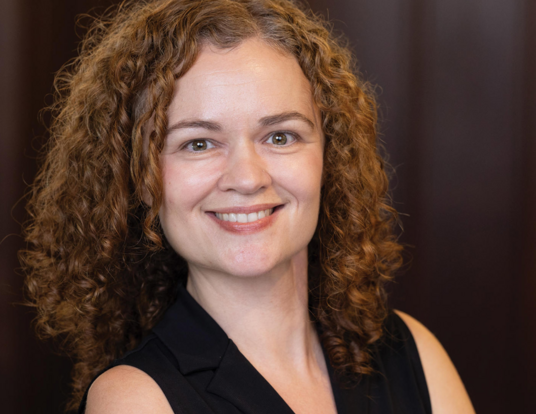An Indispensable Discipline
Clarisse Wells uses Indian philosophy to reveal why the humanities are relevant to everyday life.

Many graduate students can point to a lightning moment that placed them on their academic path. For Clarisse Wells, a PhD candidate in South Asian studies, that lightning moment was a “Pass the Mic” lecture series with philosopher Cornel West, sociologist Michael Eric Dyson, and talk-show host Tavis Smiley that passed through her hometown of Baltimore in 2003.
“Of course, I did not want to go,” Wells remembers ruefully. She had just gotten home from school and would have rather relaxed. But Wells’s mother, who was forever providing as many opportunities for education as possible—visits to museums, music performances, documentaries, book reports for books her school wasn’t assigning—insisted. At the Lyric Opera House, Wells saw something special. “Three genuinely brilliant people talking about abstract theoretical stuff, like existential philosophy, but applying it to what it is to be Black and how we can use it to overcome some of the daily, everyday obstacles.”
That day convinced Wells of philosophy’s ability to lead to the betterment of society, and she left the lecture series knowing that philosophy was the field she wanted to pursue. “And I’m still doing it 15 years later!”
Towards a Better Feminist Philosophy
Wells’ area of philosophical inquiry is a meeting of worlds: East and West, contemporary and ancient, language and meaning. She applies methodologies from Nyaya (“logic” in Sanskrit), one of the six schools of Indian philosophy, to current debates within feminist philosophy, particularly examinations of conceptions of gender.
According to Wells, Indian philosophy is perfect for the questions she is exploring because it excels in the area of philosophy of language. “This is where you talk about how words fit together in a sentence to express a unified meaning or where words get their semantic value from,” she explains. For Wells, language is the vehicle through which we come to understand just about anything about our world, including gender, the definition of which is evolving. “We don’t talk about purely biological meanings of gender anymore,” Wells says. “Now we’re talking about practices, language, performativity, and methods from Indian philosophy that are instrumental to our current debates.”
One method Wells is working on at the moment involves using theories of negation developed by the Nyaya philosopher Raghunatha Siromani to examine the erasure of gender. According to Wells, there are a number of feminist philosophers, known as gender eliminativists, who argue that not only does gender not exist, but that in order to eliminate a system of oppression, we should not engage in talk about gender at all and create a world without hierarchical gender divisions. “I look at this idea and think, wait a minute: Is it really true that negation [of the existence of gender] leads to this conclusion?” Wells asks. “Siromani puts forth a number of arguments that complicate the idea that you can negate something without maintaining a concept of it,” she says. Basically, Wells argues, it’s impossible to declare that gender doesn’t exist without simultaneously maintaining social concepts of gender.
This is just one method from Indian philosophy Wells uses as she scrutinizes current conceptions of gender within feminist philosophy. Many of these methods are unfamiliar to Western philosophers in large part because they are found in philosophical treatises written in Sanskrit. “In my dissertation, I describe some of these methods so that we can then engage in these debates in a fruitful and different direction,” Wells says.
Video Games for Philosophy
As Wells considers her next steps after defending her dissertation next year, one idea sometimes keeps her up at night: how to make philosophy more appealing to the public. “This is going to sound cheesy, but philosophy seems like the best discipline to learn about what the world is,” she says with the guardedness of someone who has had to defend her field one too many times. “And I think that if we could persuade the general public that philosophy is indispensable to education, we might be able to make some strides with feminist goals.
“I want to do more to reveal why philosophy and the humanities are indispensable for everyday practices and are not optional, not-very-serious, wishy-washy things that people are prone to think they are,” Wells explains. She is particularly interested in using digital humanities, which she defines as an amalgam space employing various media and scientific methods to explore humanities projects, to illustrate philosophical discussions. And within the digital humanities space, Wells is very excited about video games and their ability to compel people to face philosophical problems typically discussed in academic settings.
“I’m looking into games that focus on narratives about minorities,” Wells says. According to her, video games hold a special power because they allow the player to inhabit the phenomenological experience of a fictional character. “Books, movies, and video games are going to compel the person that is interacting with them to experience the world in different ways,” Wells explains. “Knowing this, it seems like you would want to leverage all three to get your message across.”
Video games have another advantage: they reach a different audience than the one that typically attends a philosophy class. “This space is very influential in forcing conversations in communities that might not normally be exposed to them,” Wells says. “And, for the most part, people aren’t going to realize that someone is trying to get them in a different headspace than they may have normally been inhabiting.” Wells knows that not everyone is going to agree with her about the pedagogical power of video games in teaching philosophy, but, as she puts it—and we have no reason to doubt her—“I’m willing to have that debate.”
Photo by John Soares
Get the Latest Updates
Join Our Newsletter
Subscribe to Colloquy Podcast
Simplecast





